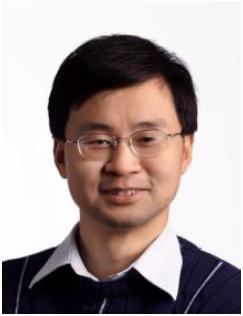Research Seminar with Professor Song Jin, USA
- Date: Fri, 14 Feb 2020, 1:00 pm - 2:00 pm
- Location: Napier G03 lecture theatre
- Cost: Free
- Contact: Kenneth Davey kenneth.davey@adelaide.edu.au
- Prof Song Jin Department of Chemistry University of Wisconsin-Madison, USA
Designing Nanostructured Electrocatalysts for Efficient and Selective Electrocatalytic and Photoelectrochemical Conversion of Energy and Chemicals.
Due to the intermittent nature of most renewable energy sources such as solar and wind, practical large-scale renewable energy utilization demands both efficient conversion and large-scale storage, or usage. Earth-abundant but highly active and selective electrocatalysts are needed to enable efficient and sustainable production of energy using electrocatalytic and photoelectrochemical (PEC) energy conversion.
We have developed earth-abundant electrocatalysts such as exfoliated nanosheets of MoS2 and ternary pyrite-type cobalt phosphosulfide (CoPS), for an efficient hydrogen evolution reaction (HER). Exfoliated nanosheets of NiCo and NiFe layered double hydroxides (LDHs) and trimetallic NiFeCr LDH have an enhanced oxygen evolution reaction (OER).
Further, efficient photoelectrochemical hydrogen generation systems that integrate these earth-abundant electrocatalysts with efficient semiconductor materials have been rationally-designed and demonstrated. The increasingly affordable renewable electricity can drive electrochemical production of value-added chemicals. For example, biomass-derived molecules, such as HMF and glycerol can be upgraded to value-added chemicals using metal oxide/hydroxide electrocatalysts.
In this seminar, recent work will be highlighted on combining computations and experiments to demonstrate cobalt pyrite (CoS2) as a selective catalyst for two-electron oxygen reduction reaction (2e-ORR) to make H2O2.
Importantly, this discovery spurs the search for increasingly-active and selective earth-abundant 2e-ORR electrocatalysts to enable decentralized on-site electrochemical production of H2O2 for industrial and environmental applications.
About the speaker

Professor Song Jin received his BSci in Chemistry from Peking University in 1997, PhD in 2002 from Cornell University and carried out postdoctoral research at Harvard University.
Dr Jin is interested in the chemistry, physics and technological applications of nanoscale and solid-state materials. He has developed innovative synthesis of a variety of nanomaterials, including metal chalcogenides, oxides, silicides and halide perovskites, and discovered and developed the screw dislocation-driven growth of nanomaterials. A unifying theme of his energy research is a focus on earth-abundant materials.
He has authored/co-authored > 200 publications and 8 patents. He has been recognized as one of world’s top 35 innovators under the age of 35 (TR35 Award) by the MIT Technology Review Magazine.
He serves as a Senior Editor for ACS Energy Letters.
